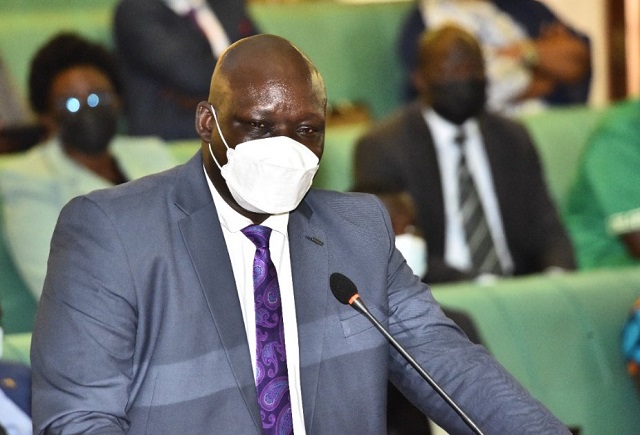
Kampala, Uganda | THE INDEPENDENT | MPs want government to urgently distribute seedlings to avert the famine in the country.
Kilak North County MP, Anthony Akol, said that the long dry spell has left Ugandan farmers without seeds, despite the current rainy season.
“This month of August is the right time that we receive rain and people really want to plant. Government should urgently distribute fast maturing seedlings like maize and beans,” he said.
He was raising a matter of national importance, during plenary sitting on Thursday, 11 August 2022.
Akol called for food distribution to be undertaken in Agago district, where he said that 20 people have died as a result of famine.
“Government should clearly inform us how food insecurity will be managed,” he said.
Christine Kaaya, Kiboga district Woman MP urged government to expedite the feasibility of agricultural insurance and its related application.
“Farmers planted quality seeds and expected to get something. Some of the soils were fertile but the performance of the produce was poor. In order to have food, we must have seeds provided at the moment,” she said.
Kaaya also proposed that the finance ministry should instruct the Parish Development Model (PDM) Committee Savings and Credit Cooperatives Organisation (SACCO) account to release funds to facilitate seed distribution.
“Right now the money is lying idle in the PDM SACCO account,” said Kaaya.
Charles Tebandeke, Bbale County MP blamed the current shortage of seeds to the incorporation of the Shs4 billion that was allocated for seedling procurement into the PDM.
“It is unfair and it will not address the issue of food insecurity in the country. All the cattle corridor is affected by the food insecurity,” said Tebandeke.
The Chairperson of the Committee Agriculture, Animal Industry and Fisheries, Jane OKori-Moe, urged government to provide the Shs4 billion, saying that it is the only way to address the lack of seeds.
“When we were budgeting, we even warned members, we said, ‘This is the only thing we survive. The PDM does not have a food security arrangement,’ ” said Okori-Moe.
Jane Okori-Moe said her agriculture committee had warned MPs of famine during the recently concluded budgeting process
She added: “Now people are starving everywhere. We needed just Shs4 billion; Shs2 billion for planting season A and Shs2 billion for planting season B and I request that we provide that money so that people have the seeds.”
Maj. Gen. Sam Kavuma, an army MP and also the Deputy Coordinator, Operation Wealth Creation (OWC) advised his colleagues in the House to introduce a new strategy to address the famine.
Kavuma revealed that the existing government enterprises under the agriculture ministry through OWC, the National Agricultural Advisory Services and PDM are not designed to address the famine challenge.
The Deputy Speaker, Thomas Tayebwa, directed the agriculture minister to provide a comprehensive statement on distribution of seeds on Tuesday, 16 August 2022.
“In the statement, we need actions taken to mitigate all these issues that have been raised. This is a very serious matter,” said Tayebwa.
*****
SOURCE: UGANDA PARLIAMENT MEDIA
 The Independent Uganda: You get the Truth we Pay the Price
The Independent Uganda: You get the Truth we Pay the Price



The 2008/9 spike in food prices pushed the number of people defined by the UN Food and Agriculture Organization as undernourished to nearly one billion and there were food riots in more than 30 cities around the world
From a legal point of view, seeds are regulated from at least three different perspectives. First, the quality of seeds are regulated to ensure that seeds purchased conform to the characteristics that have been advertised. Secondly, the safety of seeds is regulated through bio-safety measures to ensure that new or imported seeds do not create unwanted environmental harm. Third, the intellectual property protection regime has rapidly expanded to include new seeds or new micro –organisms inserted in seeds as products which can be protected under different types of intellectual property rights.
These will maintain and develop agriculture bio-diversity, enhance access to seeds and plants adapted to local conditions, provide training and sensitization activities and thereby contribute to sustainable agriculture and food sovereignty,